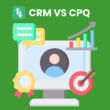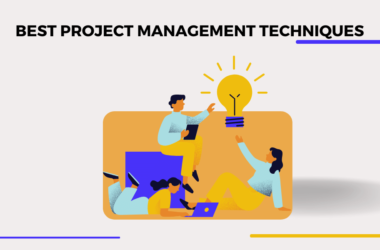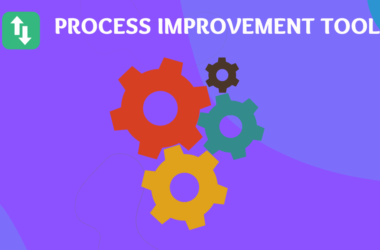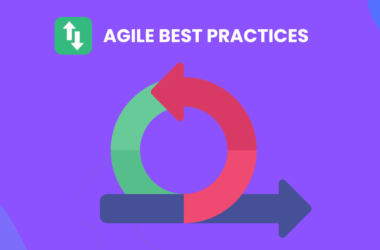Table of Contents Show
Unlock your team’s potential with Lean Project Management, enhancing productivity and delivering unparalleled value in an ever-evolving business landscape.
Lean project management is a powerful approach that maximizes productivity and efficiency. By eliminating waste and streamlining processes, teams can achieve their goals more effectively and deliver high-quality results.
Want to know the ins and outs of Lean project management? Read this blog…
Understanding Lean Project Management
Lean Project Management, at its core, is a dynamic approach to managing projects by cutting out waste and increasing efficiency. It cocoons key concepts from the Japanese manufacturing industry and translates them into a transparent, value-adding process for your project management cycle.
A seismic shift in productivity and effectiveness can be witnessed by assimilating Lean Project Management into the business landscape. It optimizes your team’s potential, unwraps dormant skills, amplifies output, and creates a conducive environment for continuous improvement.
What is lean project management?
Lean Project Management is synonymous with streamlined operations. It borrows principles from lean manufacturing, focusing on improving efficiency, reducing waste, and increasing transparency within project processes.
Lean Project Management elevates efficiency and productivity by relentlessly targeting process waste and ingraining a culture of continuous improvement to deliver high value.
Breaking down the basics, lean project management is about continuous improvement and delivering value. It targets ‘waste’ in processes, eliminating non-value-adding entities to streamline operations and boost productivity.
This management style is not just about making existing processes more efficient. It transforms the entire project management ethic, introducing a system where every action adds value and every element of waste or inefficiency is rooted out for further improvement.
Benefits of implementing lean project management
Harnessing the power of Lean Project Management significantly boosts your team’s efficiency and productivity. By eliminating unnecessary workload and streamlining processes, your team can focus on delivering high-quality outcomes.
A competitive advantage in today’s fast-paced business environment requires more than a good strategy. With Lean Project Management, not only you are driving more value to your customers but also positioning your business to adapt swiftly to an ever-changing marketplace.
Key Principles of Lean Project Management
Laying the groundwork is quintessential in the Lean Project Management journey. Centered on creating more value with fewer resources, this approach insists on consistent reassessment, progressively targeting and eliminating waste.
Investing in Lean Project Management principles sets the stage for success. With a stalwart emphasis on generating value, enhancing workflow, and perpetuating an environment of continuous improvement, it’s a bedrock of productivity that entrepreneurs and managers can deeply rely on.
Eliminating Waste
In the realm of Lean Project Management, waste elimination is the keystone for bolstering productivity. It primarily zeroes in on reducing activities and resources that don’t engender value.
- Streamline processes to eliminate non-value-adding tasks.
- Identify and rectify bottlenecks in workflows.
- Encourage team members to adopt a minimalist approach in their work spheres.
- Limit work-in-progress to avoid pile-up of uncompleted tasks.
- Implement digital solutions to trim down manual and repetitive tasks.
Creating Value
Central to lean project management is the concept of creating value. This means finding ways to deliver better outcomes using fewer resources, thereby amplifying the intrinsic value of every element involved in a project. It’s all about creating win-win scenarios, aimed at maximizing value and satisfaction for all stakeholders involved.
- Regularly reassess the value proposition of your project to ensure it aligns with customer expectations and needs.
- Utilize resources efficiently to create more value with less, by embracing tools and techniques like value stream mapping.
- Promote a culture of shared success, where everyone involved in the project benefits from its successful completion.
- Prioritize tasks based on their value-generation potential and focus on high-impact activities.
- Collaborate with clients and stakeholders to understand their needs and preferences and tailor your strategies accordingly.
Continuous Improvement
In lean project management, continuous improvement is sacrosanct. To enhance productivity, the team works towards perfecting their skills, improving processes, and revolutionizing workspaces. This idea aligns with the Kaizen philosophy: the Japanese strategy for continuous improvement in all aspects of life.
- Use regular team meetings for self-evaluation and brainstorming on ways to enhance efficiency.
- Adopt the Kaizen principle: Kaizen principles aim for small, regular improvements over drastic changes.
- Involve all team members in the improvement process for greater engagement and ideas.
- Try new tools and technologies to simplify work processes.
- Collect and analyze data continually to understand bottlenecks and areas of improvement.
- Promote an office culture of open communication and transparency.
Strategies for Enhancing Productivity
Harnessing the power of lean project management involves implementing productivity-enhancing strategies. Effective team communication, streamlining workflow, and setting clear goals are among the vital aspects to consider. When streamlined, these facets fuel efficiency in unexpected ways.
Incorporating lean project management is a calculated step toward achieving improved productivity. Leveraging technology to automate and streamline processes is central to this, paving the way to increased business efficiency and, consequently, heightened project success rates.
Effective Team Communication
Sharpening communication skills within your team emerges as a force multiplier in lean management. Establish standard protocols, schedule regular catch-ups, and encourage open dialogues; this catalyzes effective teamwork and bolsters project success.
The secret recipe for flourishing projects is an efficient exchange of ideas. Lean communication—swift, clear, and focused—dramatically expedites progress and drives performance.
To yield remarkable results, harness technology. Virtual collaboration tools and platforms can bridge gaps, ensuring messages are delivered and interpreted as they’re intended, thereby amplifying team productivity and operational efficiency.
Streamlining Workflow
To gear up for efficiency, streamlining workflow in Lean Project Management becomes non-negotiable. It involves simplifying tasks and optimizing processes to reduce waste and improve productivity.
When the Lean method is set in motion, workflow streamlining takes precedence. It’s an exercise in clarity – precisely defining roles, aligning tasks with team strengths, and continuously optimizing for improved outcomes.
Setting Clear Goals and Objectives
When employing Lean Project Management, productivity skyrockets as clear goals turn ambiguity into action. A defined roadmap overcomes hazy paths, directing resources efficiently toward the goalpost. Moreover, it instills a sense of purpose among team members, propelling them towards fruitful productivity.
Transitioning from vagueness to precision is crucial in Lean Project Management. Clear objectives are the beacon that guides your organization, ensuring no energy is wasted on non-essential tasks. By defining objectives, you foster focus and diligence, enhancing overall productivity.
Having clear goals and objectives is not a one-time act. Rigorous revisiting and revising ensure alignment with evolving business realities. By iterating your goals, you can ensure that everyone on the team is rowing in the same direction, enhancing efficiency, and productivity in your project management.
Leveraging Technology for Efficiency
Lean project management truly flourishes when technology comes into play. Maximizing productivity through automation, AI implementation, and real-time data helps organizations align effectively to lean principles. It’s through these avenues that information moves swiftly and tasks are accomplished efficiently.
Adopting an integrated tech-tool approach in project management encapsulates lean’s essence. This melds optimally with the lean mindset, reducing waste, improving process flow, and providing value; a proxy to streamlined operations and heightened efficiency. A lean approach incorporating adept technology is the winning edge in project management.
Frequently Asked Questions
1. How does lean project management enhance productivity?
Lean project management enhances productivity by focusing on continuous improvement, empowering teams to identify and eliminate inefficiencies, and promoting effective communication and collaboration.
2. What are the key strategies of lean project management?
The key strategies of lean project management include identifying and eliminating waste, implementing visual management techniques, fostering a culture of continuous improvement, and prioritizing customer value.
3. Can lean project management be applied to any industry?
Yes, lean project management principles can be applied to any industry, as they focus on improving efficiency and productivity in project execution, regardless of the specific field or sector.
4. What are the benefits of implementing lean project management?
Implementing lean project management can lead to increased productivity, improved quality of deliverables, reduced costs, enhanced customer satisfaction, and a more efficient and effective project execution process.
Conclusion
Lean project management offers powerful strategies to enhance productivity and achieve optimal results. By adopting lean principles and practices, teams can streamline processes, eliminate waste, and foster a culture of continuous improvement, ultimately leading to greater success in project execution.
More articles for you:










